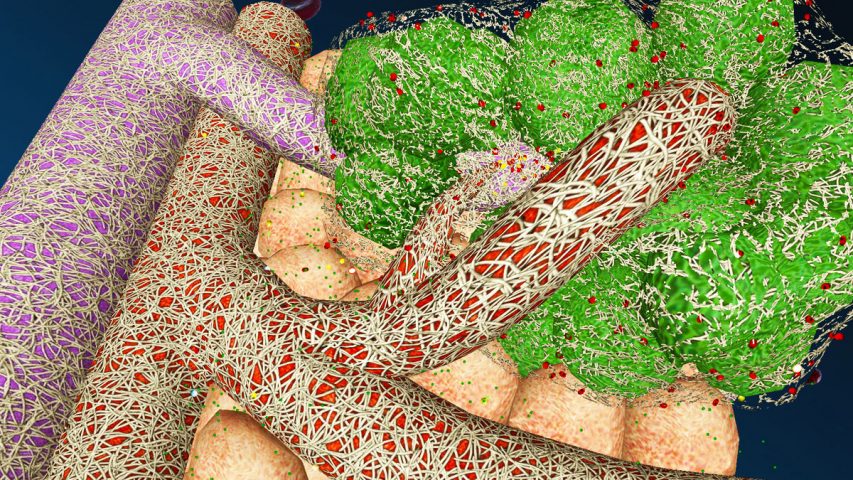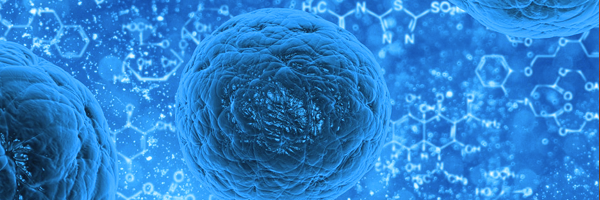- Have any questions? Contact us!
- info@dr-rath-foundation.org

Brussels EU President Jean-Claude Juncker’s ‘State Of The Union’ Address: Fiddling While Europe Burns
September 15, 2016
World Heart Day 2016: Promoting The Illusion That Deaths From Cardiovascular Diseases Can Be Prevented With Drugs
September 29, 2016Microsoft Claims It Will ‘Solve’ Cancer Within 10 Years, But Omits To Mention Its Primary Cause

In a recent announcement, software giant Microsoft claims it will ‘solve’ cancer within 10 years by ‘reprogramming’ diseased cells back to a healthy state. In a post on the ‘Microsoft Stories’ site, writer Allison Linn describes how the company’s scientists, engineers, and programmers are trying to use algorithms and computers to figure out new treatments for the disease. But behind all the media hype, the reality is that Microsoft – like the drug industry – is apparently ignoring cancer’s primary cause.
Through the use of advanced computer technologies Microsoft claims it will supposedly be able to figure out the most effective, “individualized” cancer treatments for patients. The projects the company is conducting focus on two main areas of investigation. The first follows a line of thinking that says cancer and other biological processes are essentially just information processing systems. Thus, Microsoft asserts that the same types of software tools that are used to model and reason about computational processes can also be used to model and reason about biological processes.
The second approach is more data-oriented and is based on the notion that researchers can apply techniques such as machine learning to the large volume of biological data about cancer that is now available, and then use these to better understand and treat the disease. Apparently, the thinking behind this approach is that while there is now an enormous wealth of knowledge available on cancer, the sheer amount of data means that researchers are increasingly drowning in information. As such, according to Microsoft, computers could potentially provide researchers with ways to more easily sort through this.
To all intents and purposes, it can therefore be seen that Microsoft’s announcement effectively amounts to the public launch of a new, hi-tech “War on Cancer”.
Hang on, haven’t we been here before?

Microsoft’s announcement to ‘solve’ cancer in 10 years has echoes of the so-called “War on Cancer” launched by US president Richard Nixon in 1971. Just as Nixon’s war was a failure, ignoring cancer’s primary cause will lead Microsoft’s efforts to fail, too.
As some of our readers will no doubt recognize, Microsoft’s announcement has echoes of an earlier age. In his now infamous remarks on signing the National Cancer Act of 1971, US president Richard Nixon claimed that not only he himself but also the US Congress and all of the agencies of the US government were committed to the conquest and cure of cancer. Maintaining that the US Congress was totally committed to providing whatever funds are necessary in order to reach this goal, Nixon expressed the hope that in the years ahead we would look back on it as being the most significant action taken during his Administration.
Dubbed as the beginning of the so-called “War on Cancer”, the entire orthodox research efforts that followed Nixon’s announcement have of course been a complete failure. As history shows, despite the hundreds of billions of dollars that have been spent globally on conventional cancer research and treatments since 1971, the disease remains among the leading causes of morbidity and mortality worldwide. During 2012 alone, World Health Organization statistics show there were approximately 14 million new cases of cancer diagnosed and 8.2 million cancer-related deaths. If nothing changes, the number of new cases is expected to rise by about 70 percent over the next twenty years.
The scientific facts about cancer
As Dr. Rath’s Cellular Medicine approach explains, the reason why orthodox cancer research and treatments have been unsuccessful in preventing and controlling this disease is that they don’t address its primary cause. The existence of cancer does not result from a lack of chemotherapy drugs, surgery or radiation, nor either from a shortage of computer power. Instead, the root cause of this disease is a chronic insufficiency – over many years – of vitamins, minerals, amino acids, and other micronutrients in the daily diets of patients. Without properly addressing this insufficiency, and correcting it, achieving optimum health after a diagnosis of cancer is not possible. Instead, following orthodox treatment with chemotherapy, patients invariably suffer side effects that can last the rest of their lives. Tellingly, therefore, Microsoft’s cancer project collaborators have already included the likes of drug maker AstraZeneca.

As the Cellular Medicine research conducted at the Dr. Rath Research Institute under the direction of Dr. Aleksandra Niedzwiecki has clearly shown, micronutrient approaches are safe and effective in blocking all key mechanisms that make cancer a deadly disease. These mechanisms include inhibiting the invasion and metastasis of cancer cells, curbing blood supply (angiogenesis) in tumors, and inducing cancer cell death (apoptosis). You can learn more about these scientific breakthroughs in the groundbreaking book, Victory Over Cancer.
Rather than pinning their hopes and lives on hi-tech projects that do not address the primary cause of cancer, patients would be better advised to take advantage of the existing science behind Cellular Medicine and other cutting edge micronutrient-based therapies. Not only are these approaches already available, they are scientifically proven and have long been shown to be safe. Ultimately it is only science, not hi-tech hype, that can lead us towards a cancer-free world.



